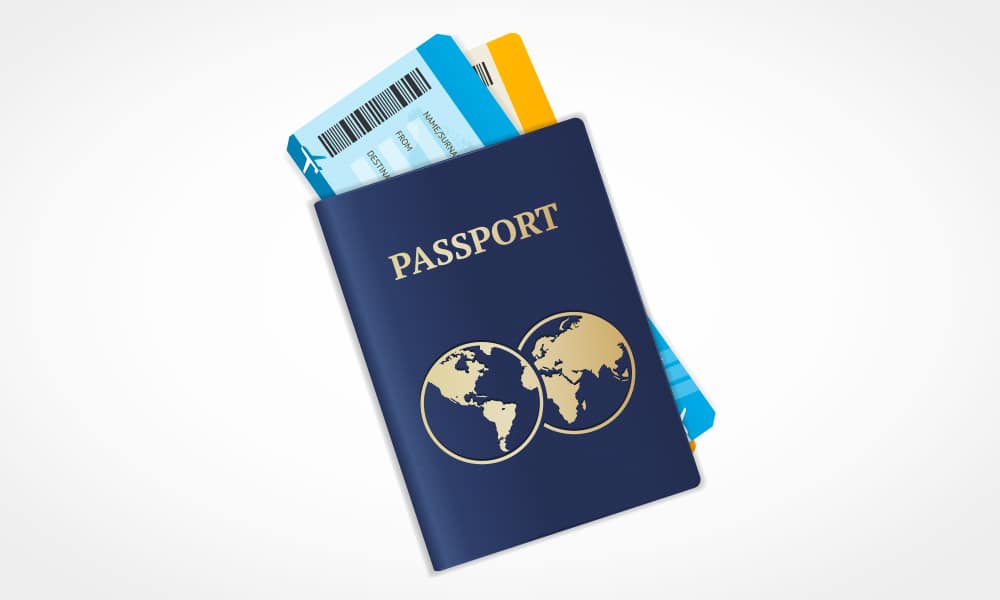


Does any of the traveller have any pre-existing medical condition like BP, diabetes etc? See what it means ›
Now covers COVID-19
How Travel Insurance Saves You During Natural Disasters
Did you know travel insurance also financially secures you against natural disasters? You can plan your trip right down to the last detail. Even if you have your flights booked, hotels sorted, and itinerary polished, nature does not always follow your checklist. You watch the news and see a volcano stir in Iceland, typhoon warnings in Japan, or a flood sweep through central Europe. And just like that, your plans fall apart. That's where travel insurance quietly takes over, protecting you during natural disasters.
It cannot stop the storm—but it surely can soften the impact.
Travel Insurance Plans on PolicyBazaar#1
- Individuals
- Sr. Citizens
- Students
When Weather Has Other Plans

You may think you are flying into postcard weather. But natural disasters don't run on tourist calendars. They arrive when they want—and change everything.
Let us see how a natural disaster can hamper your travel plans.
- Flights Grounded Without Warning: One minute, you are boarding in Bangkok. Next, a typhoon alert shuts down the airport. Flights cancelled. And you may now get stuck with a non-refundable ticket.
- Hotels Hold Tight To Your Payment: Booked a charming villa in southern Italy? Flash floods may cause you to evacuate while the hosts say refunds don't apply during 'Acts of God'.
- Cities Go Still, Transport Goes Missing: In Germany, rising rivers can halt train services. Your Eurail pass can become useless for the next 48 hours, and you may be left stranded mid-itinerary, watching your bookings go to waste.
- Injuries Far From Familiar Help: A fall on a steep trail in New Zealand during a storm evacuation. It's not just the injury—it's figuring out treatment, payment, and paperwork in a foreign system.
In all the above-mentioned situations, where you can suffer heavy financial losses, having travel insurance can act as a backup and financial guard.
What Travel Insurance Does During Natural Disasters
When nature forces a detour, insurance gives you options—financial, medical, and logistical. It helps you with:
- Trip Cancellation: If a flood, wildfire, or storm warning forces you to cancel before departure, a decent travel insurance policy can reimburse your prepaid bookings—flights, stays, and even tours.
- Trip Interruption: If a natural disaster disrupts the next few stops of your itinerary, insurance can cover the unused part of your journey—and the extra cost to return home.
- Emergency Medical Treatment: Injured while fleeing a wildfire in California or during a mudslide in Costa Rica? Travel insurance can cover your medical treatment expenses. Depending on your policy coverage, it may cover treatment, hospital stays, and medication.
- Evacuation and Repatriation: When things go south, and it's no longer safe to stay in a foreign land, your travel insurer can help get you out—whether that means moving you to a safer spot nearby or arranging your way back home.
- Compensation for Delays and Extra Costs: Flights delayed due to a natural calamity? If you miss your connecting flight due to this, your travel insurance may pay for that unexpected hotel night, food, and a fresh ticket. Read your travel insurance policy details thoroughly.
- Baggage Loss During Chaos: Luggage can easily go missing during rushed evacuations or airport shutdowns. With the right coverage, you could be compensated for essentials and even the baggage.
What You Need to Check Before Buying Travel Insurance
Not every policy covers natural disasters equally. Before you buy, look closely. The details are where it counts.
Here are the things you must keep in mind while checking the natural disaster coverage in your travel insurance policy:
- Does the policy mention natural calamities clearly?: Look for phrases like 'natural catastrophe', 'Act of God', or 'disruption due to weather events'. If it is not mentioned, don't assume it is included.
- Consider add-ons if you are headed somewhere risky.: Planning to visit the Philippines during typhoon season or explore Iceland's volcanic regions? Adding optional covers for disaster or trip protection could make a huge difference.
- Know the country-specific exclusions.: Some policies exclude politically unstable or geographically high-risk regions. Always cross-check that your entire route is covered.
- Understand how claims are filed and settled.: You won't want to read the fine print when stranded. Know important details beforehand like what documents will be needed, how soon you must notify, and what proof matters.
Documents Required for Claiming During a Natural Disaster
Filing a claim during or after a natural disaster isn't difficult—if you have kept the right documents handy. This includes the following:
- Your Travel Insurance Policy Copy: Keep a digital version in your inbox and a printed one in your travel bag. It is important to have easy access to policy documents in such chaotic times.
- Invoices and Receipts: Hotel bookings, tickets, activity confirmations—everything paid in advance will need to be backed by proof.
- Proof of the Disaster: Email alerts, airline announcements, embassy updates, and news links—all add legitimacy to your claim.
- Medical Records, If Applicable: Hospital bills, prescriptions, and discharge notes are necessary if your claim involves any medical treatment.
- Local Police or Loss Reports: If you have lost baggage or documents during the event, official reports (even if basic) can help your claim go through smoothly.
What Travel Insurance Might Not Cover in Case of a Natural Disaster
Even a great policy has its limitations. Here's what usually doesn't make the cut.
- Travelling Against Advisory Warnings: If you travelled to a zone with a clear government or weather alert already in place, you may not be covered—even if a disaster strikes.
- Claims Without Verifiable Proof: Saying “the storm delayed my trip” isn't enough. You'll need documentation to back it up—timings, reports, confirmations.
- Delays Under The Minimum Time Threshold: Many policies only cover delays beyond 6-12 hours. Anything shorter can be considered a normal travel risk.
- Independent Evacuations Without Insurer Approval: Booking a private helicopter or car out of a disaster zone without informing your insurer could mean you cover the cost alone.
What's Covered & What's Not – A Quick Look
| Situation | Covered | Not Covered |
| Cancelled trip | If booked before a warning is issued | If the advisory was already active |
| Medical injury | Covered under medical expenses | If due to a pre-existing condition that you did not disclose |
| Delayed return flight | If the delay is over the policy threshold | If the delay is under the covered hours |
| Evacuation arranged via insurer | Fully paid by the insurer | If booked privately without approval |
Why Travel Insurance is Worth Every Rupee
Natural disasters don't arrive with prior information. However, a good travel insurance plan can provide you with a shield to protect you both financially and emotionally.
-
It prevents your holiday from becoming a financial hole
You may lose a trip, but you don't have to lose your savings either. -
It brings clarity when there is confusion everywhere
When flights are cancelled, and plans fall through, travel insurance gives you a way—and someone to call. -
It keeps you safe, even when you're far from home
Through helplines, medical partners, and assistance teams, it is helpful when someone speaks your language—even halfway across the world. -
And yes, it's surprisingly inexpensive
For the price of a nice airport meal, you get a safety net that could cover lakhs in loss.
To Sum It
You can't stop a flood in Venice or control typhoon season in Tokyo. But you can choose how to face it if you are there. Travel insurance won't rewrite the weather, but it can prevent your story from becoming a disaster.
STANDARD TERMS AND CONDITIONS APPLY. For more details on risk factors, terms, and conditions, please read the sales brochure carefully before concluding a sale.
Policybazaar Insurance Brokers Private Limited, Registered Office - Plot No.119, Sector - 44, Gurgaon, Haryana - 122001 | CIN: U74999HR2014PTC053454 | Policybazaar is registered as a Composite Broker | Registration No. 742, Valid till 09/06/2027 | License category - Composite Broker | Contact Us | Legal and Admin Policies
*Price shown is for a 180 day trip to Thailand with 50 thousand dollar coverage for an adult of age 25 years





































